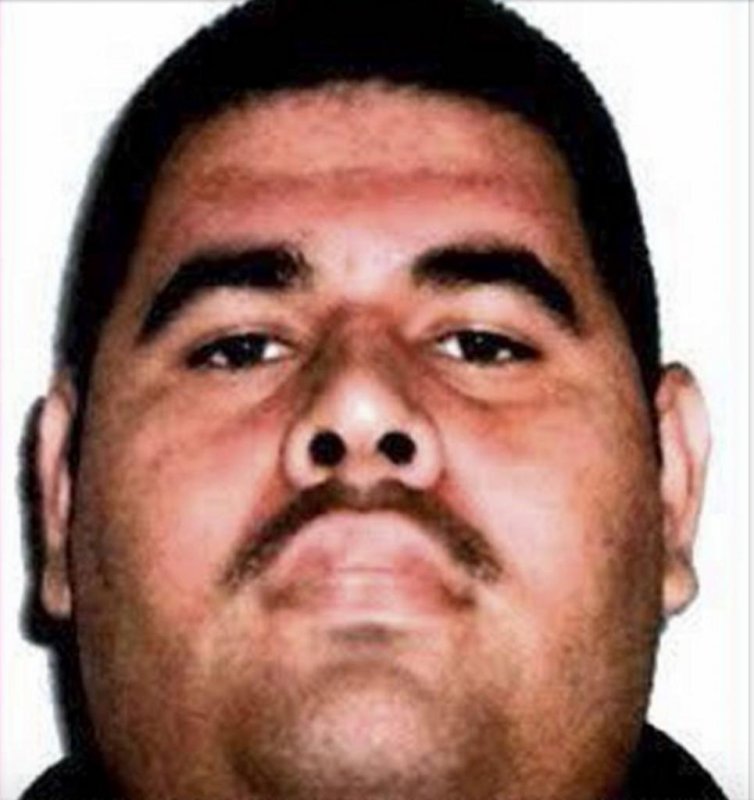Prison for smuggler who guided people into U.S.
Efrain Delgado Rosales had been caught with undocumented immigrants 23 times in less than 18 years
UnionTribune: San Diego— An apparent career smuggler nabbed while guiding four undocumented immigrants through the Otay Mountains last year was sentenced Friday to five years in prison.
U.S. Border Patrol agents had caught Efrain Delgado Rosales with undocumented immigrants 23 times in less than 17 years, according to the U.S. Attorney’s Office.
His latest encounter came in November, when agents spotted the 35-year-old guiding the foursome through rugged East County terrain.
The four men told authorities that Delgado had picked them up at a stash house in Mexico, led them to the border then left them for several hours. As they waited, thieves turned up and robbed them of all of their cash — thousands of dollars.
Delgado returned and — indifferent to the robbery — guided them over the border and through the mountains. While hiking, he left behind three men who could not keep his pace.
At the begging of the fourth man, he eventually returned to collect the distressed trio, each of whom had paid $5,000 to be smuggled into the country.
The details they gave investigators about their experience with Delgado were strikingly similar to an instance in 2014, when a man smuggled into the country died while hiking in a rugged stretch of the Otay Mountains. One of his companions later identified Delgado as their guide.
Federal prosecutors said agents have apprehended Delgado 24 times since 1999, and in all but one instance, he was found with at least two and up to 46 undocumented immigrants.
Obama Administration Official Confirms “Catch and Release” Policy
Border Patrol union chief tells the Judiciary Committee explosive information about the Administration’s policy of releasing unlawful immigrants into U.S.
Washington, D.C.– Following the Immigration and Border Security Subcommittee’s hearing on the ongoing surge at the southwest border, the House Judiciary Committee received information from the head of the Border Patrol union showing that a high-ranking Obama Administration official confirmed to Border Patrol agents the Administration’s policy of releasing recent border crossers with no intention of ever removing them.
In his responses to questions submitted for the record to the Committee, Brandon Judd, President of the American Federation of Government Employees National Border Patrol Council, stated that on August 26, 2015 he and two other Border Patrol agents met with Department of Homeland Security (DHS) Deputy Secretary Alejandro Mayorkas to discuss concerns about the Administration’s policy of releasing unlawful immigrants into the United States. During the meeting, Deputy Secretary Mayorkas confirmed to the agents that the Administration has no intention of removing unlawful immigrants coming to the border as part of the ongoing surge. Specifically, he stated:
“Why would we [issue a Notice to Appear to] those we have no intention of deporting? We should not place someone in deportation proceedings, when the courts already have a 3-6 year backlog.”
This de facto policy contradicts the Obama Administration’s so-called enforcement priorities issued on November 20, 2014 by DHS Secretary Jeh Johnson. Under the guidelines, unlawful immigrants who came to the United States after January 1, 2014 and recent border crossers are deemed a priority for removal and are to be placed in deportation proceedings. However, Deputy Secretary Mayorkas’ comments to Border Patrol agents contradict the Administration’s own policies put forth by Secretary Johnson.
House Judiciary Committee Chairman Bob Goodlatte (R-Va.) issued the following statement on this information provided to the Committee:
“Not only has President Obama sought to undermine our immigration laws at every opportunity possible, now his political appointees have implemented a ‘catch and release’ policy that contradicts the Administration’s already weak enforcement priorities. Rather than take the steps necessary to end the border surge, the Obama Administration is encouraging more to come by forcing Border Patrol agents to release unlawful immigrants into the United States with no intention of ever removing them.
“The ongoing lack of enforcement and dismantling of our immigration laws undermines both our nation’s immigration system and the American people’s faith in their government.”
What about King Midas?
El Chapo’s money man arrested in Oaxaca
OAXACA, Mexico, March 28 (UPI) — A man reported to be one of drug lord Joaquin “El Chapo” Guzmán top money launderers has been arrested, Mexican Federal Police said Sunday.
Juan Manuel Alvarez Inzunza, 34, one of the top money launderers for Mexican drug lord Joaquin “El Chapo” Guzmán, was captured while vacationing in Oaxaca, Mexico by Mexican Federal Police and the Mexican Army. He is alleged to have laundered about $4 billion over the last ten years. Photo by Mexican Federal PoliceJuan Manuel Alvarez Inzunza, 34, alleged to have laundered about $4 billion in the last ten years, was arrested while vacationing in the southern state of Oaxaca, police tweeted.
Police said IInzunza, nicknamed “El Rey Midas” or “King Midas”, laundered about $300 million to $400 million dollars a year from the Guzman’s Sinaloa cartel through a network of companies and currency exchange centers in Mexico, the United States, Columbia and Panama, MSN reported.
IInzunza was arrested on a provisional extradition warrant from the U.S., where he is wanted for money laundering.
Guzmán was one of the heads of the Sinaloa Cartel, considered Mexico’s most profitable drug gang. His escape from a maximum-security prison in Mexico drew world-wide attention in 2015. He was recaptured after a shootout on Jan. 8.



